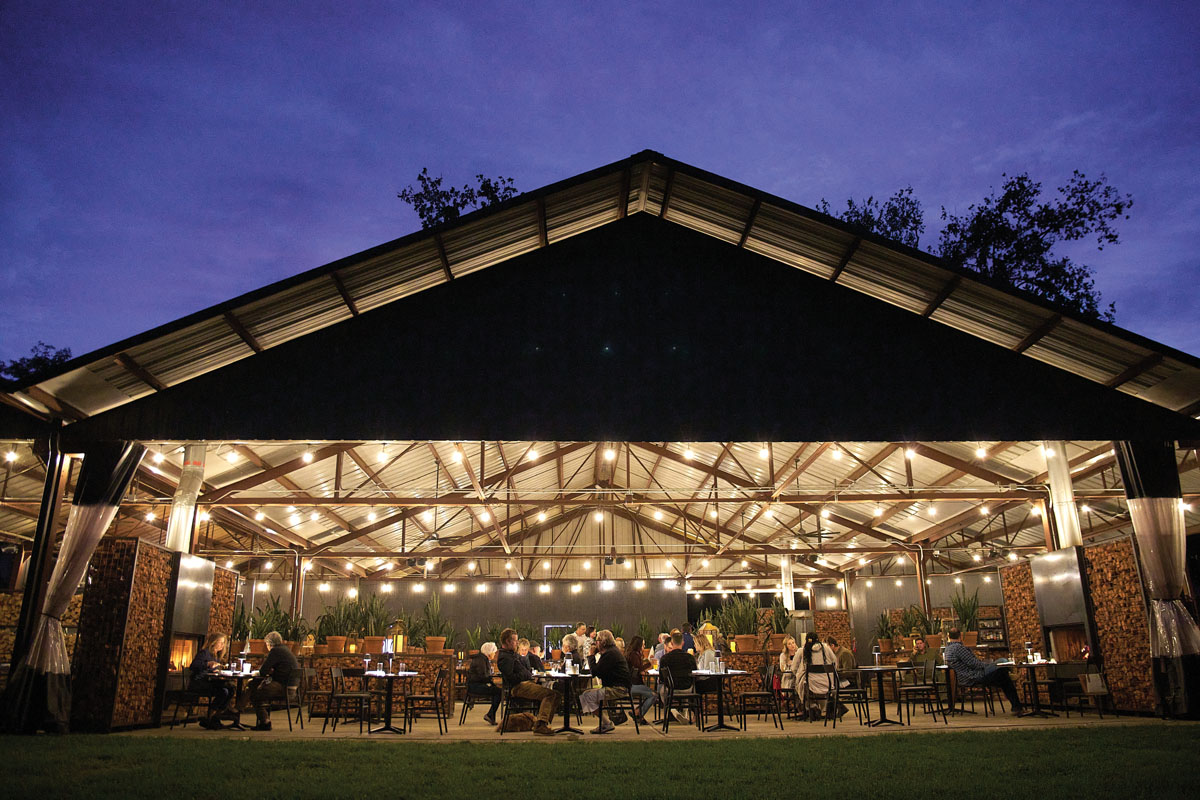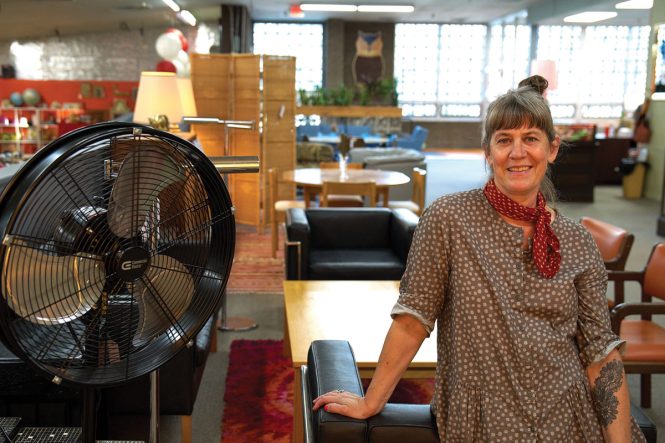Kingston: A New Era
By Staff | | Community Spotlight
In August of 2023, Kingston adopted zoning changes that had been seven years in the making. Dubbed “Kingston Forward,” the form-based code updated regulations in place since 1961 to allow mixed-use neighborhoods and accessory dwelling units (ADUs), loosen parking requirements, and otherwise encourage incremental infill rather than sprawl. The plan drew approving nods from land use organizations like Planetizen and Strong Towns, and last spring was singled out for awards from the New York Conference of Mayors and the Congress for New Urbanism.
“This makes it much easier to build new housing in Kingston,” says Bartek Starodaj, Kingston’s director of housing initiatives. “The old code was very regimented: only single family homes here, only industrial there. This code is all about the mixing of uses and lifting restrictions on density: Multi-family, corner stores, and small-format commercial businesses can be anywhere, which is a return to our historic urban fabric. Our goal is to approve 1,000 units of new housing by 2029.”
The clock on that count started in January. Since then, 50 new units have been approved, and Starodaj says there are larger projects on the drawing board that, once fully approved, will add significant numbers to that count. Two previously approved projects—164 workforce and affordable units at Golden Hill, site of the former county jail, and the 100-unit mixed-use and mixed income Barrel Factory proposal slated for Cornell Street—received grant funds totaling over $14 million from the state’s Mid-Hudson Momentum Fund. A city-sponsored design contest yielded pre-approved plans for an ADU that moderate-income or lower-income property owners can get grants to build in exchange for charging affordable rent for 10 years. And in June, the Kingstonian, a mixed-use project approved in 2022 that includes 143 apartments, a hotel, and 8,000 square feet of commercial space Uptown, emerged from years of lawsuits that sought to block it.
No one move will solve the supply issues that have driven an affordability crisis that’s been building for a couple of decades, hard on the heels of the IBM departure that cut over 7,000 jobs, but no one could accuse Kingston officialdom of not trying, on this or a number of other fronts: the city’s website Engagekingston.com invites citizens to weigh in on a long list of projects, initiatives, and issues.
The Kingston Scene
Last spring, Anne Sanger teamed up with two like-minded entrepreneurs and reinvented her art gallery as a component of Kingston Social, a cafe/mercantile/gallery space ensconced in a vintage space directly across the street from the county office building. “It’s been amazing,” she says. “After two months open, we’re still seeing a steady, increasing flow, and we’ve got a good mix of regulars—from young parents to office workers on break to seniors—who’ve adopted us as home base. We get people from all over Ulster County, of course, wanting to relax after handling whatever business; then we get old-school Kingston residents who are happy to have a spot serving great coffee. And we’ve been discovered by a lot of Italian visitors who come in and say ‘I feel like I’m at home.’ Then my business partner Helena [Palazzi], who does our coffee, starts speaking fluent Italian to them and their minds are blown.”
When Kingston Social participated in Upstate Art Weekend in July, Sanger was thrilled to have so many spots all over town to recommend to art-minded visitors. “I told people not to miss the spots on the official map, but I also gave them a bunch of suggestions for places that are just popping up and getting started—they can be in on whole new discoveries. The scene is burgeoning, nascent, and crackling. I’m absolutely loving every bit of it.”

Cindy Hoose opened Red Owl Collective, a multi-vendor antique and vintage emporium, in Midtown Kingston in 2023.
Another of Sanger’s favorite kinds of fun is all things vintage. “We have Red Owl and Kingston Consignment, Lovefield Vintage, and Capitol Vintage and Reracked. There’s a lot of really fantastic vintage shopping here, from high-end to bargain, and it’s becoming a great spot to hunt for furniture, decor, and clothing. It makes sense, after all—you have art fiends and you have vintage fiends, and we’re often the same people.”
The Kingston Real Estate Market
“Right at this moment, Kingston has 38 current active and contingent listings, 13 of which have accepted offers, so that leaves only 25 that are fully available, ranging from $177,000 to $1.8 million,” Halter Associates realtor Brian Cafferty told us in late July. “And there are an additional 14 homes currently pending in contract, from $170,000 to $899,000, so it’s quite a price spread. Properties aren’t sitting around, either; our average days-on-market dropped by almost a week from last year.
Cafferty says that most sellers are getting their asking prices. “Of course, in this kind of market, you’ll find a few sellers who get irrationally exuberant with their pricing and end up having to adjust. But if you compare sale price to initial list price, even with that included, it comes out to 97 percent, around the same as 2023.”
With supply so tight, Cafferty says, potential buyers need to be prepared to compete—multiple offers are still a thing in Kingston. “Sadly, you can probably forget about an FHA mortgage—in these conditions, those offers are bound to go to the bottom of a pile of 20-percent-down-in-cash possibilities. I ask people if there’s anyone they know who can help; once they own the property, they can refinance and repay the rich uncle or whoever. Sellers expect 20 percent down, and when a house costs nearly half a million, that’s $100,000 cash—it’s just not a really affordable market right now.”
At press time, a 1,350-square-foot three-bedroom in need of considerable TLC was contingent at $159,000, and a 150-by-150-foot corner lot in the Rondout with river views, a “slice of heaven waiting for your visionary touch” could be purchased for $150,000. A two-bedroom cottage in the heart of Uptown, with room for a garden, was on the market at $275,000. For $699,000, one could consider a 3,200-square-foot mixed-use brick with two apartments and a turnkey restaurant, and a well-kept six-bedroom Tudor with stone patio and Juliet balcony had just hit the market for $1.2 million.
